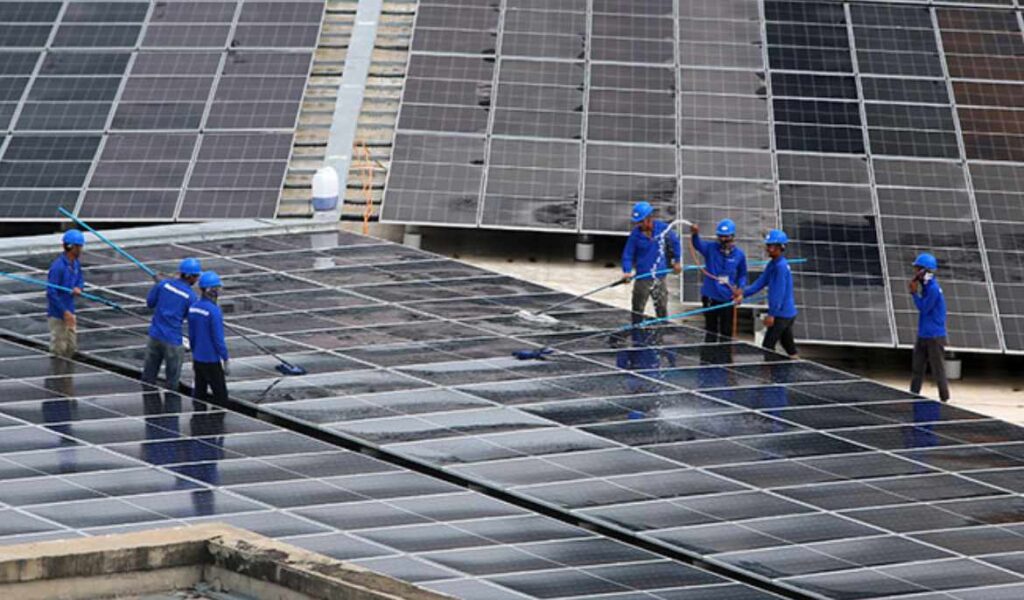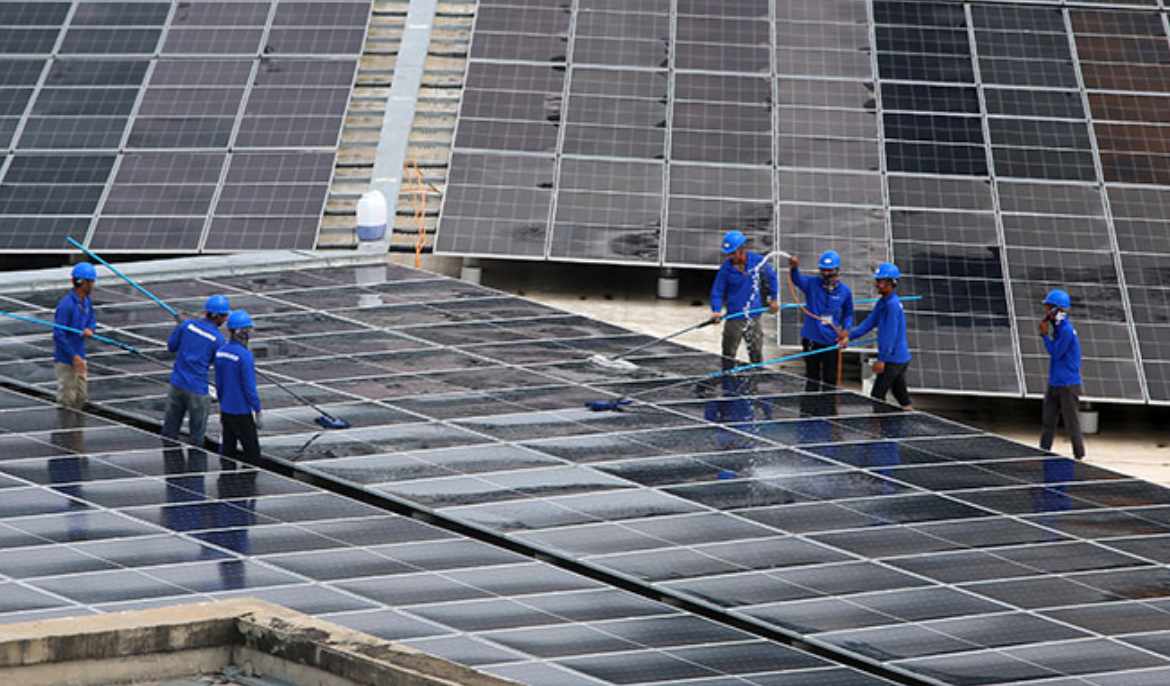Amid clean energy becoming a massive growth opportunity, experts say that Cambodia is well-positioned to become a champion of green energy manufacturing.
According to them, the decline in the sale of solar panels last year is not a major cause of worry as it followed the expiration of the US preferential tariff for solar panels for the country.
The Kingdom’s solar panel exports declined nearly 60 percent to about $830 million in 2024 from more than $2 billion in 2023, as per the data released by the General Department of Customs and Excise.
Green energy manufacturing mainly encompasses the production of solar photovoltaic cells, batteries, electric two-wheelers, wind turbines and all other products that contribute either towards the generation or promotion of renewable energy.
Speaking to Khmer Times, Akshay Pattumuri Venugopal, electrical engineering expert and technical consultant based in Phnom Penh, said Cambodia possesses the potential to emerge as a prominent player in the global green energy manufacturing sector.
“Leveraging its abundant solar resources, strategic geographic location, and a burgeoning economy, the country can capitalize on the growing demand for renewable energy solutions.”
Akshay highlighted four factors that could serve special advantage for Cambodia in the sector – abundant solar radiation, strategic location, growing economy and government support. “Cambodia enjoys ample sunshine throughout the year, making it an ideal location for solar panel manufacturing. This natural resource advantage can significantly reduce production costs and enhance the competitiveness of Cambodian-made solar products.
“Cambodia offers excellent connectivity to major markets in the region, including China, India, and other ASEAN countries. This strategic location facilitates trade and logistics, enabling efficient and cost-effective distribution of green energy products.”
On the economic front, he said Cambodia’s economy has been experiencing steady growth, creating a favourable environment for investment and development in the renewable energy sector.
“This economic growth provides a strong foundation for supporting the establishment and expansion of green energy manufacturing industries. Government Support: The Cambodian government has demonstrated increasing interest in promoting renewable energy, which can translate into supportive policies, incentives, and financial assistance for green energy manufacturers.”
Akshay pointed out that the Kingdom must focus on manufacturing solar panels, wind turbines, bioenergy products and energy storage systems.
However, he said, the journey won’t be smooth as there are many challenges in the path ahead. “Limited skilled workforce, inadequate infrastructure, lack of technological experts and limited access to finance could become stumbling blocks in the country’s ambition to become a green energy manufacturing hub.”
A comprehensive national strategy along with public-private partnership could resolve these issues to a large extent, he added.
Economist Chun Yu Yang, in his Op-ed published in South China Morning Post, says that Cambodia possesses several advantages that would support the continued development of its renewable industry.
“Cambodia’s low labour cost remains a major source of competitiveness for its manufacturing sector. Furthermore, the country’s high level of dollarization minimises currency mismatch risks for foreign investors. Given the lack of strict capital control policies, foreign investors can freely move their money in and out of the country, increasing their confidence in the economy.
“The government is also working on streamlining regulations, improving the business climate, and offering more investment incentives, such as tax holidays and duty exemption. These policy measures aim to make Cambodia an attractive destination for foreign direct investment and an appealing diversification option for companies considering ‘China+1’ or ‘Thailand+1’ strategies.
“Additionally, the government has published its Power Development Plan for 2020-2040, focusing on increasing the share of renewable energy, improving grid stability, and reducing energy costs, allowing the country to deepen the development of its renewable energy sector.”
However, he opined that the country’s Cambodia’s solar panel industry is confronted by challenges from unstable electricity supply and high transportation costs. “The unit price of its solar panel exports remains higher than that of the other three countries, reflecting the need for Cambodia to address its infrastructural bottlenecks to lower production costs and stay competitive.”
Green Energy Expert Dr Wu Shun Te told Khmer Times that Cambodia must increasingly focus on boosting its renewable energy production as well as the manufacturing of renewable energy products. He asserted that exploring renewable energy potentials, across all spectrums, will offer the gold standards for inclusive growth.



